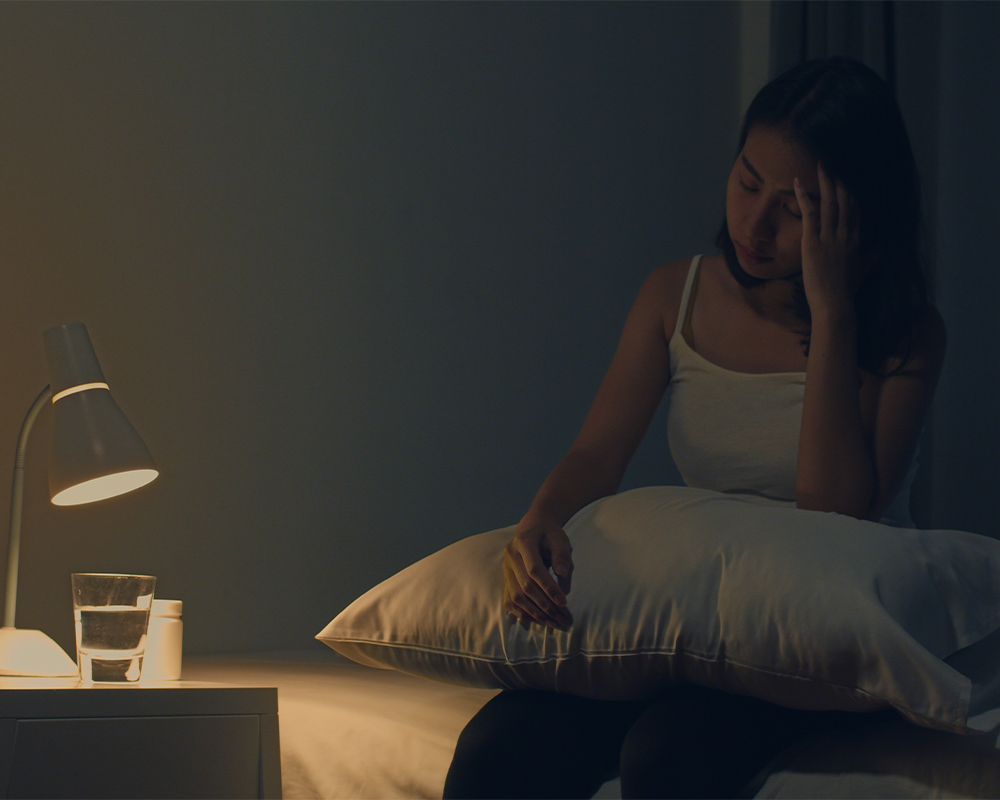Restless sleep, characterized by frequent awakenings, tossing and turning, or the inability to reach deep restorative sleep stages, is a common yet often overlooked issue. Unlike occasional sleeplessness, disrupted sleep can significantly impact both physical and mental health, leading to fatigue, difficulty concentrating, mood swings, and a weakened immune system.
Additionally, several factors contribute to this condition, ranging from lifestyle to underlying medical conditions. These habits may range from irregular sleep schedules, caffeine or alcohol consumption to disorders like sleep apnea, restless leg syndrome, or anxiety. Understanding the causes of restless sleep is crucial for identifying effective strategies to manage it, ensuring a better quality of life and overall well-being.
Understanding What Restless Sleep Feels Like—An In-Depth Overview
Restless sleep doesn’t have a strict, clinical definition and isn’t recognized as a formal sleep disorder by the American Academy of Sleep Medicine (AASM). AASM has set standards and promotes excellence in sleep medicine, healthcare, education, and research. Therefore, according to the set standards, the concept of such disrupted sleep patterns can be somewhat subjective. Moreover, this may give a glimpse of what it looks like from an external perspective.
While restless sleep can manifest in several ways, some most observed indications are;
- Frequent tossing and turning, seeking a comfortable position.
- Continuous stirring due to a racing or overactive mind.
- Growing frustration and exasperation from an inability to attain sound sleep.
- Difficulty falling back asleep quickly after waking up unexpectedly.
In addition to this, its effects often become evident the following day, when one may feel tired, sluggish, or mentally unalert. Moreover, often the exasperation and unintentional frustration speaks for itself when a person is restless throughout the night. Furthermore, when such fragmented sleep patterns become a regular occurrence, it can lead to more significant problems, including increased risks of accidents or injuries. These accidents often occur as a result of drowsiness while driving or operating heavy machinery.
Restless Sleep and Its Potential Causes
If it persists for a longer period, restless sleep may impose potential harm on overall health and trigger associated health consequences. Therefore, it is crucial to understand the underlying causes of exacerbating and contributing to restless nights.
Lifestyle and Behavioral Factors
Lifestyle habits play a significant role in disrupting sleep cycle. Practices like irregular sleep schedules, excessive caffeine or alcohol close to bedtime, and heavy meals before bed may contribute to sleeplessness. Furthermore, lack of a proper bedtime routine can disrupt the body’s natural sleep-wake cycle.
The blue light emitted from screens can suppress melatonin production, making it difficult to fall asleep and stay asleep. Therefore, monitoring and staying mindful of certain lifestyle habits may reflect positively over the longer run.
Specific Medical Conditions
While restless sleep is not considered as a medical condition like sleep-disordered breathing (SDB) – it is like with different related conditions. For instance, sleep apnea, a condition characterized by intervals of breathlessness, can lead to fragmented sleep, and consequently, restless nights.
Additionally, restless legs syndrome (RLS) causes uncomfortable sensations in the legs and an irresistible urge to move them. This dire urge may be felt particularly during periods of rest, which can lead to significant sleep disturbances. Other conditions like acid reflux, chronic pain, and heart disease can also cause repeated awakenings or difficulty staying asleep.
Sleep Disorders
Specific sleep disorders such as insomnia, periodic limb movement disorder (PLMD), and parasomnia are key causes of restless sleep. Insomnia, the most common sleep disorder, is characterized by difficulty falling or staying asleep.
In addition to this, PLMD involves involuntary leg movements during sleep, disrupting the sleep cycle. Lastly, parasomnia includes abnormal behaviors that occur during sleep, leading to restlessness and frequent awakenings. Such sleep disorders may add to the signs or symptoms of restless sleep. Therefore, identifying, recognizing, and monitoring them may help massively in treating such conditions.
Dietary Influences
Diet plays an important role in determining sleep quality. Consuming large meals, caffeine, or sugar close to bedtime can interfere with sleep. While caffeine is a stimulant that can keep the mind alert, sugar can cause spikes in blood glucose levels. Both of these stimulants may lead to restlessness.
Furthermore, foods high in fat or spice can cause digestive issues, leading to discomfort or sleep disruptions. Conversely, inadequate nutrition or dehydration can also cause sleep disturbances. Keeping the perfect balance and watching one’s own diet may play a significant role.
Circadian Rhythm Disruptions
Circadian rhythm is the body’s internal clock that regulates the sleep-wake cycle. Disruptions in circadian rhythm, such as those caused by shift work, jet lag, or irregular sleep patterns, can result in restless nights. Moreover, when the circadian rhythm is out of sync, it can lead to difficulties falling asleep, staying asleep, or waking up feeling rested.
The body understands the signals it gets from the external environment. To keep the body in sync and allow it to restore its functions, it is important to have a restful sleep throughout the night.
Hormonal Imbalances
Hormonal changes or imbalances can have a significant impact on sleep quality. For example, women may experience sleep disturbances during menstruation, pregnancy, or menopause. These disturbances may result due to fluctuating levels of estrogen and progesterone in the body. Also, conditions like thyroid disorders may also affect the production of sleep-regulating hormones, leading to restless nights.
Psychological Factors
Psychological factors often play a huge role when it comes to both mental and physical health. Mental health issues like stress, anxiety, and depression are leading contributors to disturbed sleep. Anxiety triggers the body’s “fight or flight” response, causing an increased heart rate and heightened alertness. This increase in heart rate and alertness makes it challenging to relax and fall asleep.
Also, depression can disrupt the sleep cycle by altering the body’s circadian rhythms, leading to difficulties in falling asleep or staying asleep.
How is Restless Sleep Diagnosed?
To determine what might be causing restless nights and disturbed sleep, a healthcare provider can use several diagnostic methods. The initial evaluation usually involves taking a detailed medical history, discussing symptoms, reviewing current medications, and performing a physical examination. These steps may provide enough information to identify the underlying cause.
If further investigation is needed, additional tests may include:
- Sleep Log: Keeping a record of sleep habits and patterns can help the healthcare provider identify potential triggers contributing to restless nights.
- Sleep Study (Polysomnogram): This overnight test involves attaching electrodes to the body to monitor brain activity, breathing, and movement during sleep. This test provides a comprehensive analysis of sleep disturbances.
- Sleep-Wake Actigraphy: Using a wearable device, this test tracks movement and rest cycles, helping to identify possible sleep disorders and their causes.
Final Verdict
Restless sleep is a multifaceted problem influenced by a variety of lifestyle, psychological, medical, environmental, and dietary factors. Whether due to habits such as irregular sleep schedules or underlying health, the effects of restless nights can extend beyond nighttime disruption. These nighttime disruptions may impact daily functioning, mood, and overall health.
Furthermore, addressing the causes of disturbed sleep or fragmented sleep often requires a comprehensive approach. This approach may include lifestyle changes, stress management, and medical intervention. Understanding these factors and taking proactive steps to manage them can significantly improve sleep quality. This ultimately leads to a healthier and more balanced life.





